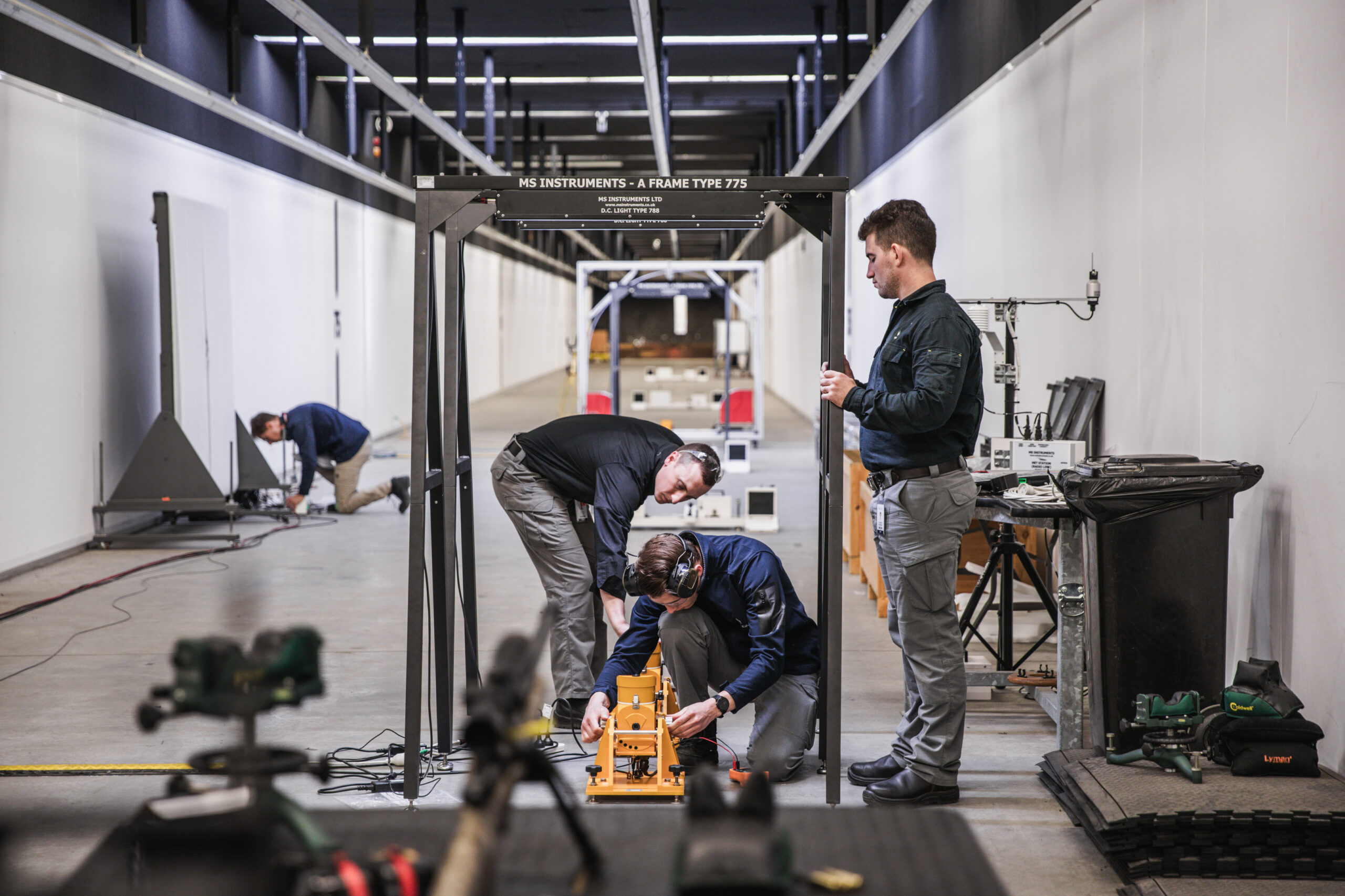STANAG 2920 Fragment Simulating Projectile Test
The STANAG 2920 Fragment Simulating Projectile (FSP) test is a critical component of ballistic and armor testing, designed to evaluate the protective capabilities of military-grade body armor. This test simulates the impact of fragmentation from explosive devices or shrapnel, which can be lethal in combat scenarios. The primary objective is to ensure that the tested materials are robust enough to withstand such impacts without compromising the wearer's safety.
The FSP test involves firing a fragment simulating projectile at high velocity towards a target sample mounted on a ballistic pendulum or similar apparatus. The projectile, typically made of steel or tungsten carbide, is designed to mimic the size and shape of fragments found in real-world scenarios. The impact must be severe enough to cause penetration through the armor while also ensuring that the wearer remains protected from secondary effects like shrapnel.
Testing procedures are strictly regulated by STANAG 2920, which specifies detailed criteria for both the projectile and the testing environment. This ensures consistency across different laboratories worldwide, allowing for accurate comparisons of various materials' performance. The test is particularly important in the development and certification of new armor systems, ensuring they meet stringent safety standards required for military use.
The ballistic pendulum used in these tests provides a controlled environment to measure the energy transfer and penetration depth of the projectile. This data helps engineers refine designs by identifying weak points or areas needing improvement. Additionally, this test plays a crucial role in validating the effectiveness of new armor materials against evolving threats. As military technology advances, so too must testing protocols like STANAG 2920 to keep pace with emerging challenges.
Understanding the nuances of the FSP test is essential for those involved in quality management, compliance officer roles, R&D engineering teams, and procurement processes within defense industries. By comprehending how this test impacts product development cycles and final certifications, stakeholders can better appreciate its significance in safeguarding personnel on the battlefield.
| Standard Reference | Description |
|---|---|
| STANAG 2920 | Fragment Simulating Projectile Test Methodology for Ballistic and Armor Testing. |
| ISO/TS 14683-7:2005 | Ballistic Resistance of Personal Protection - Part 7: Fragments, Penetration Tests. |
Why It Matters
The STANAG 2920 FSP test is vital in ensuring that military personnel have the highest level of protection against potential threats. The test helps manufacturers identify any weaknesses in their armor design and materials, allowing for continuous improvement through iterative design processes. By adhering to international standards like STANAG 2920, companies demonstrate commitment to producing reliable equipment that meets global quality benchmarks.
For military organizations, compliance with such tests ensures that issued gear is effective in protecting soldiers during operations. This not only enhances operational readiness but also contributes significantly towards maintaining morale among troops who know they are equipped with cutting-edge technology designed specifically for their safety.
The results of these tests play a crucial role in the certification process, providing empirical evidence needed to approve new products before widespread deployment. Non-compliance can lead to recalls or re-designs, adding delays and costs to development timelines but also reducing risk exposure once equipment reaches field use.
Ultimately, rigorous testing like STANAG 2920 fosters trust between manufacturers, regulatory bodies, and end-users by establishing clear guidelines for what constitutes adequate protection. This collaborative approach helps drive innovation while maintaining high standards across the industry.
Applied Standards
| Standard Reference | Description |
|---|---|
| STANAG 2920 | Fragment Simulating Projectile Test Methodology for Ballistic and Armor Testing. |
| ISO/TS 14683-7:2005 | Ballistic Resistance of Personal Protection - Part 7: Fragments, Penetration Tests. |
International Acceptance and Recognition
The STANAG 2920 FSP test enjoys widespread recognition across the international community due to its rigorous methodology and consistency in results. Many countries adopt this standard as part of their national protocols for evaluating ballistic protection, ensuring that all participants adhere to common criteria.
Recognizing the importance of such tests, various governmental bodies have endorsed STANAG 2920, further cementing its status as an authoritative reference in the field. Laboratories accredited under this standard are often preferred by manufacturers seeking to ensure their products meet global standards.
The international acceptance of STANAG 2920 also facilitates cooperation between nations on research and development projects related to ballistic protection. By aligning with these established practices, countries can share resources more efficiently and accelerate advancements in armor technology.
Furthermore, compliance with this standard enhances interoperability among armed forces operating together in multinational missions. Standardized testing procedures allow for seamless integration of different types of equipment from various sources, reducing logistical complexities during deployments.





